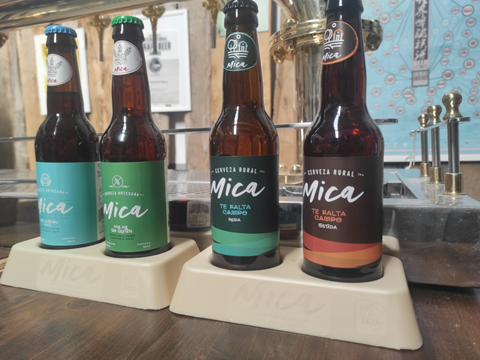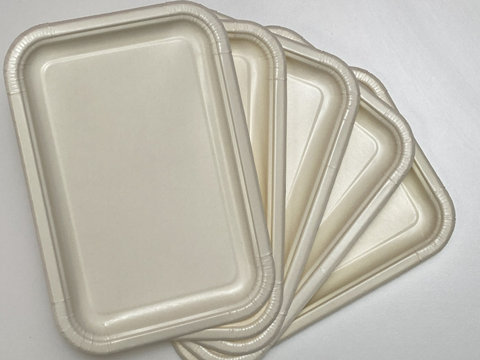
The European BIOSUPPACK project says it has developed a compostable, renewable material from brewer’s spent grain that can replace conventional polyolefins and be used to develop new thermoplastic materials and coatings for packaging in the food, cosmetics, and household cleaning sectors.
Led by AIMPLAS, the project consortium consists of 17 partners from 7 different European countries, funded by the European Union’s Horizon 2020 research and innovation programme and the Bio-Based Industries Consortium.
Rosa González, Lead Researcher in Packaging at AIMPLAS and Víctor Sevilla, Researcher in Packaging at AIMPLAS say that the project has successfully transformed spent grain waste into a high-value-added biopolymer, PHB, from the polyhydroxyalkanoates (PHA) family. The partners have contributed to the production of this new biopolymer and the development of new materials and industrial-scale packaging prototypes, which will be validated by various end users in the final phase of the project.
AIMPLAS and Mica have led the development of a beer bottle display for the HORECA sector, which is currently in its validation stage. Logoplaste is steering the development of bottles for food and non-food products and Graphic Packaging International has produced cardboard packaging demonstrators using the new coating applied through converting technologies such as printing, lamination, and compression.

The project also aims to demonstrate the recyclability of the new packaging using both mechanical and enzymatic recycling technologies. This includes a validation phase for the identification and separation of PHB-based waste for recovery. Other innovations include the use of plasma technology, the modification of new coatings through grafting technology, and the development of new enzymes.
Earlier this year Closed Loop Partners’ Composting Consortium, the US Composting Council (USCC), and the Biodegradable Products Institute (BPI) announced the launch of a grant programme to help composters and municipalities process certified compostable packaging by installing new equipment, conducting trials, and educating consumers. The partners aspire to strengthen composting infrastructure, uplift best practices for processing compostable packaging, and drive the implementation of useful policies.
In May, Freshr stated it had completed an oversubscribed seed funding round for its proprietary antimicrobial coating for recycled, recyclable, and compostable fresh fish packaging - designed to extend shelf life, reduce waste, and save money. Reportedly, the technology can be chemically immobilized into post-consumer recycled, recyclable, and compostable materials, which are distributed in rolls in hopes of easier implementation compared to standard modified atmosphere packaging.
If you liked this story, you might also enjoy:
The ultimate guide to the Packaging and Packaging Waste Regulation in 2025
How are the top brands progressing on packaging sustainability?
Everything you need to know about global packaging sustainability regulation in 2025
The key to increasing the use of reusable packaging in supermarkets













No comments yet